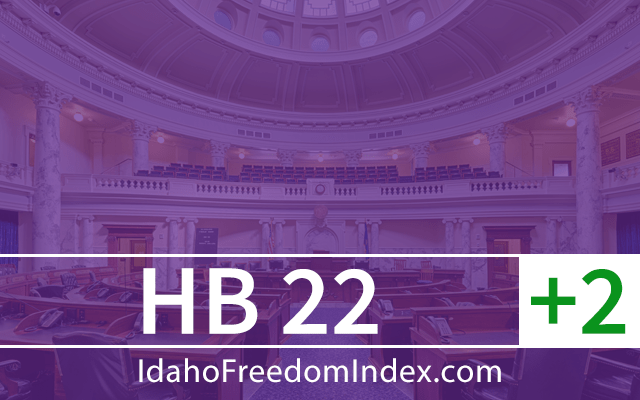


Bill description: HB 22 would remove the age limit requirement for sign language interpreters and allow licensees to show proof of licensure electronically.
Rating: +2
Does it increase barriers to entry into the market? Examples include occupational licensure, the minimum wage, and restrictions on home businesses. Conversely, does it remove barriers to entry into the market?
When sign language interpreting was first licensed as a profession in 2017, licensees were required to be at least 21 years of age. Last year, the age requirement was reduced to 18 years.
HB 22 entirely eliminates the age restriction requirement. By eliminating the minimum-age requirement, HB 22 would reduce an onerous barrier to entering the profession. If an individual is otherwise qualified, even at a young age, they will, if the age requirement is eliminated, be able to provide their services to those who are in need.
(+1)
Does it give government any new, additional, or expanded power to prohibit, restrict, or regulate activities in the free market? Conversely, does it eliminate or reduce government intervention in the market?
When the state issues occupational licenses, licensees are frequently required to show a copy of the state license when they provide services to the public. For doctors, dentists, cosmetologists, and many others, this means hanging the license or a copy on the wall so that clients can see it. For mobile professions, however, licensees may be required to carry a copy on their person.
Those who have a license to practice audiology or speech-language pathology, to fit hearing aids, or interpret sign language are required to carry a copy of their license on their person. HB 22 would allow licensees to show their license electronically, such as on their phone, rather than limit them to a hard copy.
(+1)


